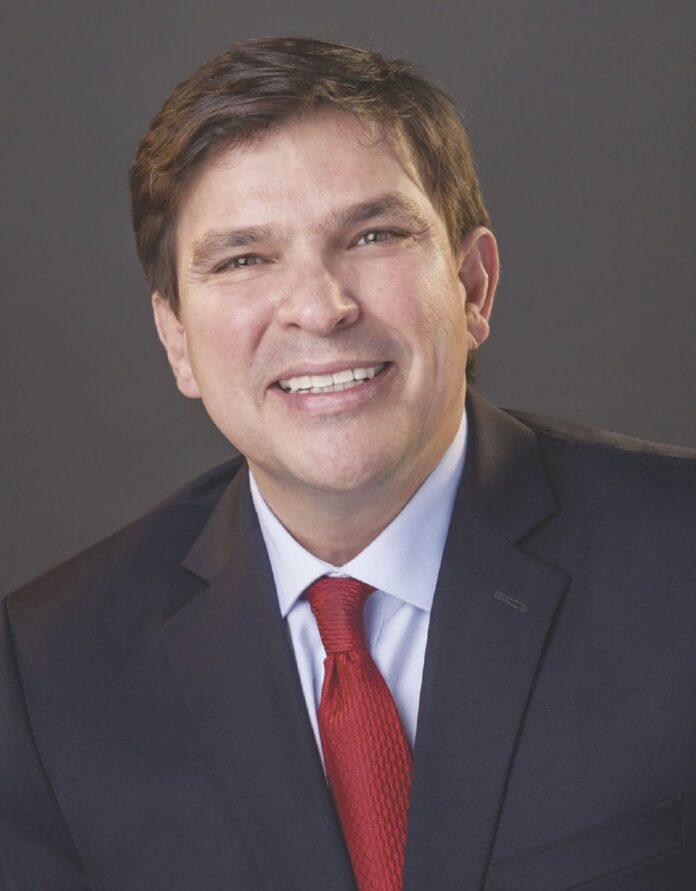As we begin a new decade, I was struck by the recent news of an American family that was returning to the United States from their vacation in Mexico who were violently and deliberately gunned down on a Mexican highway along the U.S.-Mexico border, resulting in the death of a 13-year-old child. To add to the tragedy, on the evening of Monday, Dec. 23, just days before Christmas, a U.S. citizen was murdered in his vehicle while waiting to cross the McAllen-Hidalgo International Bridge.
While we wait for Mexican authorities to pursue justice, I cannot sit idly by without making a statement about the heartbreaking situations that could have been prevented by the Mexican government.
For months now, I have implored the governments of the United States and Mexico to secure trade and tourism routes leading to the United States. One such route includes Highway 40D, from Monterrey, Nuevo Leon, all the way to the international bridges on the U.S.-Mexico border. The inaction of both governments has had devastating consequences.
It is even more ill-fated that perhaps we missed our last opportunity to secure Highway 40D during the negotiations to secure the votes to pass the U.S.-Mexico-Canada Agreement in the U.S. House of Representatives.
Many times, my requests to U.S. Trade Representative Robert Lighthizer and the Mexican government to consider including security in the agreement were snubbed, asserting that the agreement was about trade and not security. I would now argue that these concerns should not have been mutually exclusive.
During the USMCA debate in the House in December, I spoke on the floor about the serious danger thousands of tourists and business transports face every day while traveling on Highway 40D as they attempt to get to their final destination — Texas, other states or Canada. Many of the people who travel on Highway 40D fear for their lives due to the numerous cases of gory shootouts, kidnappings and killings that have been reported on this highway and near the ports of entry on the Mexican side for so many years.
On that December evening, the U.S. citizen who was killed in his vehicle, whose identity has not been released, and the young boy did not make it to their final destinations. Instead they are statistics of the violence that has riddled Mexico for more than a decade.
Violence in Mexico has spiked significantly, with 2018 reported as the deadliest in the country’s history. According to a report released by the Mexico’s Secretariat of Security and Citizen Protection that recorded 33,341 homicides, a 15% increase from 2017, and since 2006, Mexico has lost twice as many people to homicide as the United States has lost soldiers to every war since Korea.
Since meeting with Mexican Secretary of Public Security Alfonso Durazo last March, I have continuously pushed U.S. and Mexican officials to incorporate security guarantees with proper timelines and implementation like the proposed Safe Highway program. The Safe Highway program is a pilot program proposed by Mexico that seeks to secure six highways throughout Mexico, including Highway 40D, which I heavily lobbied Secretary Durazo to incorporate into the program.
The U.S. alone has invested about $2 billion to bring peace and security to Mexico through the Merida Initiative, and U.S. President Donald Trump has publicly said he is willing and ready to help Mexico if they so wish.
Again, I must make it known that if Mexico, with or without the support of the U.S., fails to act on securing this highway and the Mexican side of our ports of entry, it is only a matter of time before another person is killed — Mexican or U.S. citizen — due to this senseless violence that seems to now be the norm.
I implore Mexican President Andres Manuel Lopez Obrador to take this matter seriously and act accordingly for the well-being and safety of thousands of people on both sides of the U.S.-Mexico border, including considering the help offered by the U.S. to deal with this pandemic issue.
Failure to do so is unacceptable and will leave a lasting negative impression on President Lopez Obrador and his administration.
U.S. Rep. Vicente Gonzalez represents Texas Congressional District 15, which extends from Hidalgo County to Bexar County.




